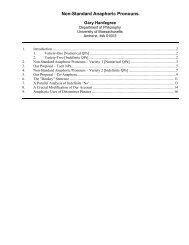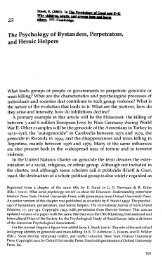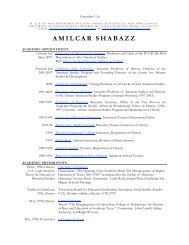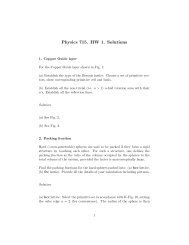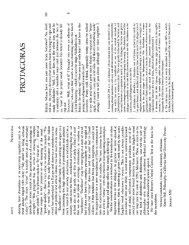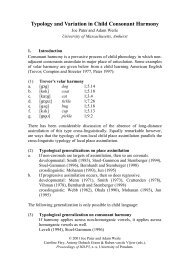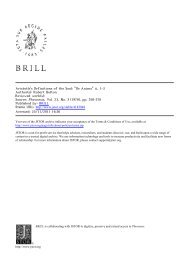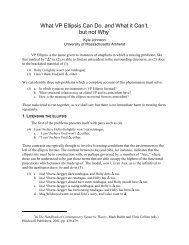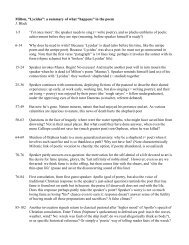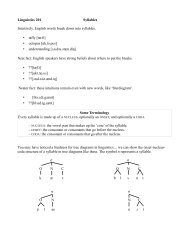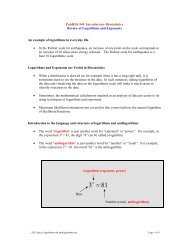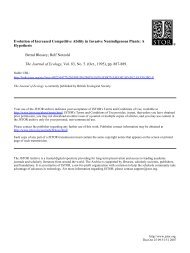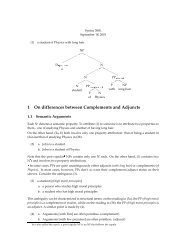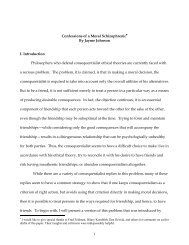HISTORY OF PHILOSOPHY Outlines of Scepticism
HISTORY OF PHILOSOPHY Outlines of Scepticism
HISTORY OF PHILOSOPHY Outlines of Scepticism
Create successful ePaper yourself
Turn your PDF publications into a flip-book with our unique Google optimized e-Paper software.
<strong>Outlines</strong> <strong>of</strong> <strong>Scepticism</strong><br />
These are the ContentS <strong>of</strong> the First Book <strong>of</strong> the <strong>Outlines</strong> <strong>of</strong><strong>Scepticism</strong>:<br />
ii<br />
iii<br />
iv<br />
V<br />
vi<br />
vii<br />
vu’<br />
ix<br />
x<br />
x<br />
Xli<br />
xiii<br />
xiv<br />
xv<br />
xvi<br />
xvii<br />
Xviii<br />
XIX<br />
xx<br />
xxi<br />
Xxii<br />
xxiii<br />
xxiv<br />
xxv<br />
xxvi<br />
xxvii<br />
xxviii<br />
Xxix<br />
xxx<br />
caci<br />
Xxxii<br />
jcomi<br />
xxxiv<br />
The most fundamental difference among philosophies<br />
The accounts constitutive <strong>of</strong> <strong>Scepticism</strong><br />
Its nomenclature<br />
What is the concept <strong>of</strong> <strong>Scepticism</strong>?<br />
The Sceptic<br />
Its principles<br />
Do Sceptics hold beliefs?<br />
Do they belong to a school?<br />
Do they study natural science?<br />
Do they reject what is apparent?<br />
The standard <strong>of</strong> <strong>Scepticism</strong><br />
Its m<br />
The general modes <strong>of</strong> <strong>Scepticism</strong><br />
The Ten Modes<br />
The Five Modes<br />
The Two Modes<br />
What are the modes which overthrow those who <strong>of</strong>fer causal<br />
explanations?<br />
The Sceptical phrases<br />
The phrase ‘No more’<br />
Non-assertion<br />
‘Perhaps’, ‘Maybe’ and ‘Possibly’<br />
‘I suspend judgement’<br />
‘I determine nothing’<br />
‘Everything is undetermined’<br />
‘Everything is inapprehensible’<br />
‘I have no apprehension’ and ‘I do not apprehend’<br />
‘Opposed to every account there is an equal account’<br />
Rules for the Sceptical Phrases<br />
Is <strong>Scepticism</strong> a path to the philosophy <strong>of</strong> Heraditus?<br />
Does the school <strong>of</strong> Democritus differ from <strong>Scepticism</strong>?<br />
Does Cyrenaicism differ from <strong>Scepticism</strong>?<br />
Does Protagoreanism differ from <strong>Scepticism</strong>?<br />
Does <strong>Scepticism</strong> differ from the Academies?<br />
Is Medical Empiricism the same as <strong>Scepticism</strong>?<br />
Book I<br />
i The most fundamental difference among philosophies<br />
[i] When people are investigating any subject, the likely result is<br />
either a discovery, or a denial <strong>of</strong> discovery and a confession <strong>of</strong><br />
inapprehensibility, or else a continuation <strong>of</strong> the investigation. [2]<br />
This, no doubt, is why in the case <strong>of</strong>philosophical investigations, too,<br />
some have said that they have discovered the truth, some have<br />
asserted that it cannot be apprehended, and others are still investi<br />
gating.<br />
[31 Those who are called Dogmatists in the proper sense <strong>of</strong> the<br />
word think that they have discovered the truth — for example, the<br />
schools <strong>of</strong> Aristotle and Epicurus and the Stoics, and some others.<br />
The schools <strong>of</strong> Clitomachus and Carneades, and other Academics,<br />
have asserted that things cannot be apprehended.’ And the Sceptics<br />
are still investigating. [] Hence the most fundamental kinds <strong>of</strong><br />
philosophy are reasonably thought to be three: the Dogmatic, the<br />
Academic, and the Sceptical. The former two it will be appropriate<br />
for others to describe: in the present work we shall discuss in outline 2<br />
the Sceptical persuasion. By way <strong>of</strong> preface let us say that on none <strong>of</strong><br />
the matters to be discussed do we affirm that things certainly are just<br />
as we say they are: rather, we report 3 descriptively on each item<br />
according to how it appears to us at the time. 4<br />
ii The accounts constitutive <strong>of</strong> <strong>Scepticism</strong><br />
[sJ The Sceptical philosophy contains both a general and a specific<br />
account. 5 In the general account we set out the distinctive character <strong>of</strong><br />
<strong>Scepticism</strong>, saying what the concept <strong>of</strong>it is, what are its principles and<br />
The same is said <strong>of</strong>the Cyrenaics at i 215. For the New Academy see I 220—31; and<br />
note that other sources expressly say that the Academics did not ‘assert that<br />
things cannot be apprehended’.<br />
2 utot1ntwtLKGç: the work is an outline or cotitwaç, and Sextus frequently<br />
reminds us <strong>of</strong> the fact: i 206, 222, 239; III, 79, i8s, 194-; III I, 114, 167, 279. Note<br />
also his assurances that he is only <strong>of</strong>fering ‘few out <strong>of</strong>many’ examples (158, note)<br />
and that he is concerned to be brief(i 163, note); and see i 94.; 1184,212; III 56, 71,<br />
135, 168.<br />
For this use <strong>of</strong> the term ‘report’ see I 15, 197, 203.<br />
Cf. e.g. 1 191; H i8.<br />
Cf.Mviii.



